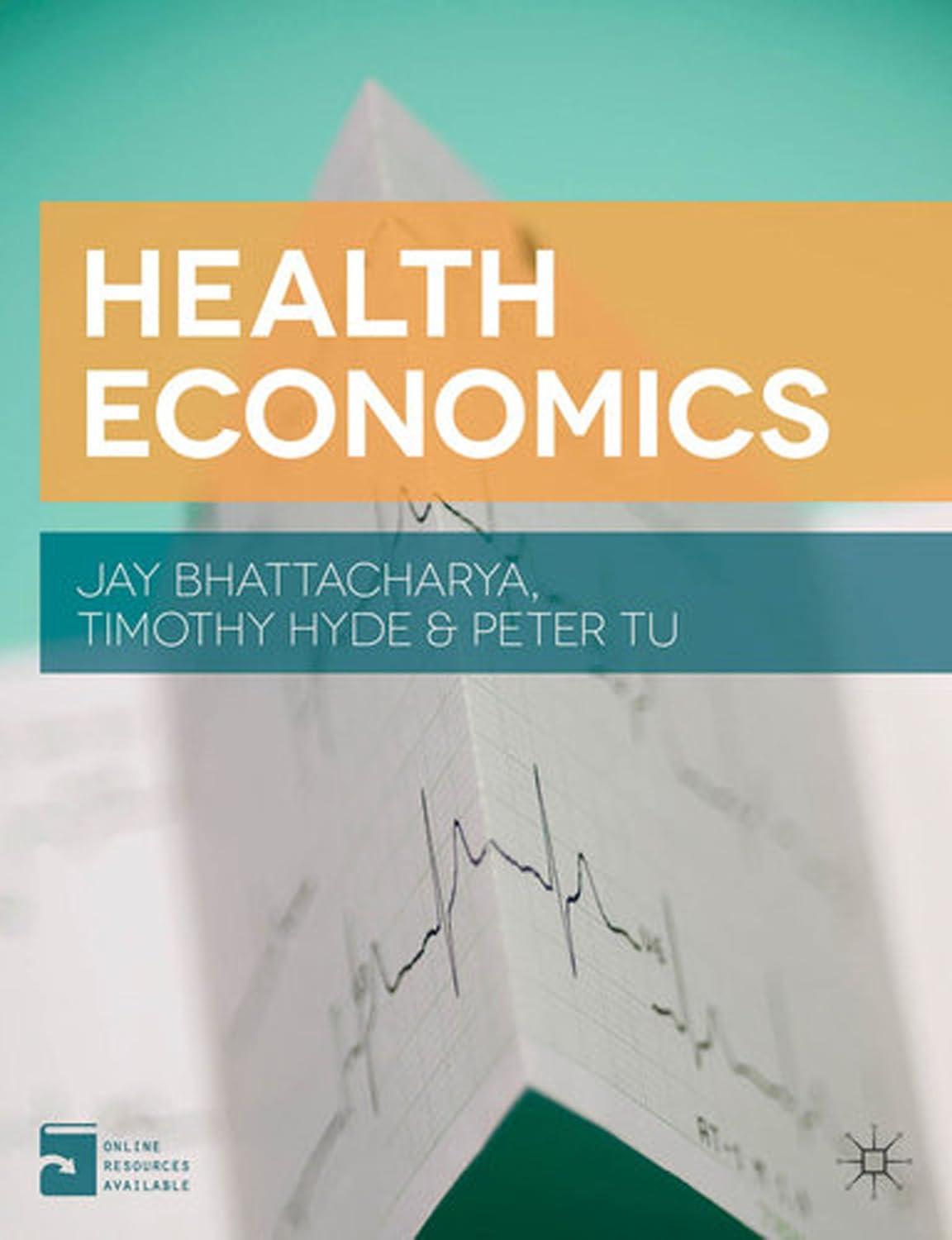Assume that Jay discovers, to his dismay, that his 2014 healthy-state income will be lower than his
Question:
Assume that Jay discovers, to his dismay, that his 2014 healthy-state income will be lower than his 2013 healthy-state income, but that his sick-state income IS is unchanged from 2013 to 2014. Assume that his healthy-state income in 2013 is IH, and his healthy-state income in 2014 is IH − Δ. Assume 0 < p < 1.
a. What is the difference between Jay’s expected income in 2014, E[I14], and his expected income in 2013, E[I13]?
b. Assume that a local insurance firm designed an ideal insurance contract for Jay in 2013 – that is, one that was actuarially fair and full that year. They now want to adjust the contract so that it remains ideal for Jay in 2014. How will the premium r change, if at all? How will the payout q change, if at all? Interpret these changes in terms of the concepts of price and quantity.
c. Suppose Jay finds a stipulation in the fine print of his contract that the premium and payout cannot change for five years. The firm gnashes its teeth and admits it cannot legally change the contract set in 2013. Describe how full and fair this contract will be for Jay in 2014. Would Jay prefer to be healthy or sick, assuming he buys the contract and that his utility is determined by his income level?
Step by Step Answer:






